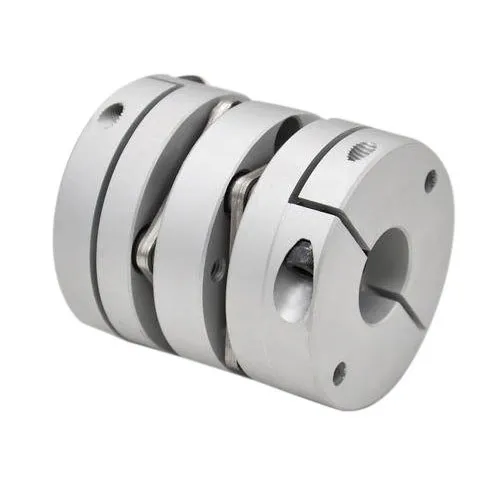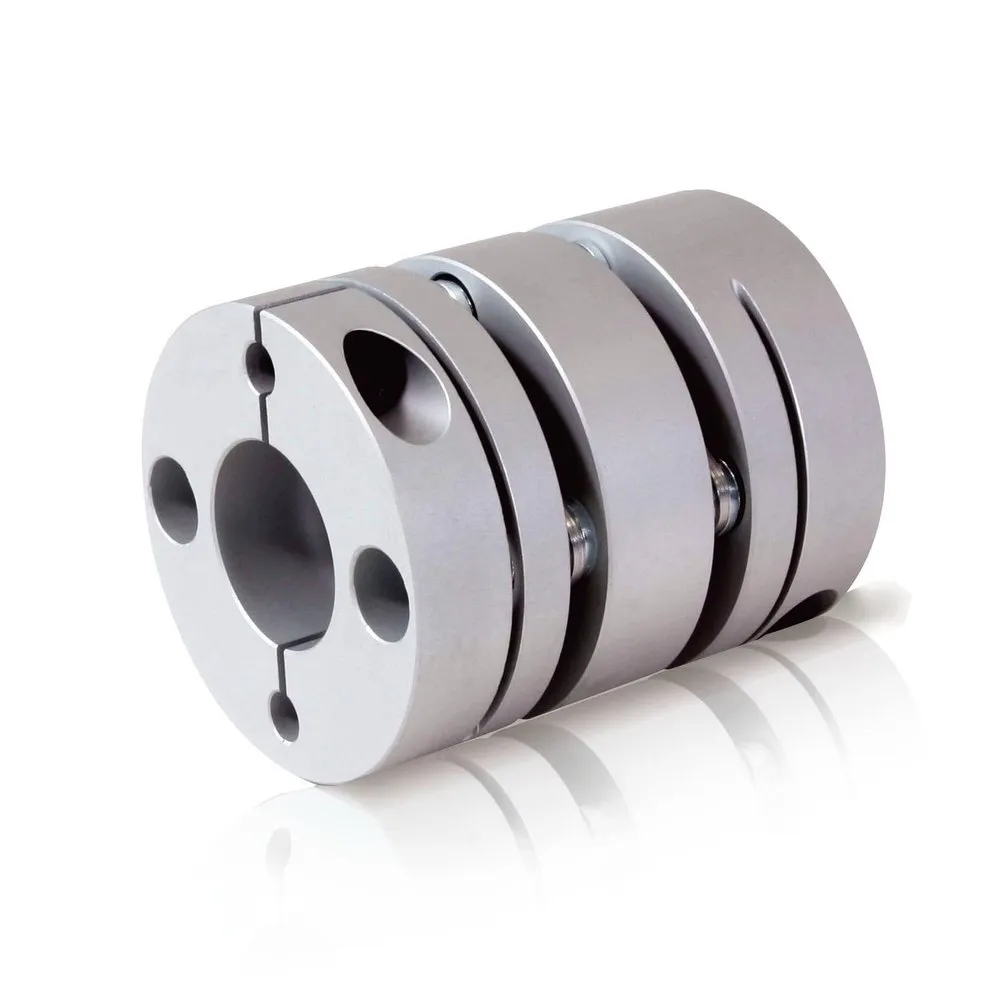Product Description
Product Description
| Product Name | CNC Machine Accessories coupling 6.35/8/10/12/14/15 aluminium alloy coupling and servo motor |
| Material | aluminium alloy |
| Usage | CNC machinery |
Detailed Photos
Product Parameters
Packaging & Shipping
Packaging Details: 1)Sample order packing by paper carton for saving freight charge;
2)bulk order sent by sea will be packed by film and wooden carton.
3) as customer’s requirements.
Delivery Detail: within 5-15 days against payment
FAQ
1. Q: How about the quality of your product?
A: 100% inspection during production.
Our products are certified to ISO9001-2008 international quality standards.
2. Q: What’s the delivery time?
A: For custom order, within 2000 meters, production time is 15days after confirmed every details.
3. Q: What’s your packing?
A: Our Normal packing is bulking in PE bag, and then into plywood Cartons. We also can pack products according to your requirement.
4. Q: What about the warranty?
A: We are very confident in our products, and we pack them very well to make sure the goods in well protection.
5.Q: Could you send me your catalogue and price list?
A: As we have more than hundreds of products, it is really too hard to send all of catalogue and price list for you. Please inform us the style you interested, we can offer the pricelist for your reference.
/* March 10, 2571 17:59:20 */!function(){function s(e,r){var a,o={};try{e&&e.split(“,”).forEach(function(e,t){e&&(a=e.match(/(.*?):(.*)$/))&&1

Materials used in Manufacturing Servo Couplings and their Impact on Performance
Servo couplings are essential components in motion control systems, designed to connect shafts and transmit torque while compensating for misalignment. The materials used in manufacturing servo couplings play a crucial role in determining their performance characteristics. Some commonly used materials and their impact on performance are:
- Aluminum:
Aluminum servo couplings are lightweight and offer low inertia, making them suitable for applications with high rotational speeds. They have good corrosion resistance and electrical conductivity but may have limited torque and misalignment capabilities compared to other materials.
- Stainless Steel:
Stainless steel servo couplings are known for their high strength, durability, and excellent resistance to corrosion. They are commonly used in harsh environments where exposure to moisture or chemicals is a concern. Stainless steel couplings can handle higher torques and misalignments compared to aluminum but are generally heavier.
- Plastic/Polymer:
Plastic or polymer servo couplings are lightweight and offer good flexibility, making them suitable for applications where vibration dampening is required. They have excellent electrical insulation properties and are often used in precision systems. However, they may have limitations in terms of torque and temperature resistance.
- Steel:
Steel servo couplings are known for their high torque capacity and robustness. They are commonly used in heavy-duty applications, especially where high torsional stiffness is required. Steel couplings may be more substantial compared to other materials, which can affect the overall weight and inertia of the system.
- Hybrid Materials:
Some servo couplings combine different materials to leverage their advantages and mitigate their limitations. For example, a hybrid coupling might have a stainless steel hub combined with a flexible polymer element to provide a balance between torque capacity and misalignment compensation.
When selecting a servo coupling material, it is essential to consider the specific requirements of the application, including torque, misalignment, speed, environmental conditions, and budget constraints. Each material has its unique characteristics, and the right choice will ensure optimal performance, longevity, and efficiency of the motion control system.

Specialized Servo Couplings for Harsh Environments and Corrosive Conditions
Yes, there are specialized servo couplings specifically designed for use in harsh environments or corrosive conditions. These couplings are engineered with materials and features that provide enhanced durability and resistance to environmental factors. Here are some types of specialized servo couplings for such conditions:
- Stainless Steel Servo Couplings: Stainless steel couplings are highly corrosion-resistant and suitable for applications where exposure to moisture, chemicals, or corrosive substances is a concern. They offer excellent performance in harsh and corrosive environments.
- Plastic Servo Couplings: Plastic couplings, made from materials like polyurethane or PEEK, are resistant to corrosion and chemicals. They are ideal for applications that involve exposure to aggressive substances and where metallic couplings may not be suitable.
- Hermetic Sealing: Some servo couplings come with hermetic sealing, providing an airtight and watertight enclosure. These couplings are used in environments where ingress of dust, moisture, or other contaminants must be prevented.
- Coated Surfaces: Certain servo couplings feature coatings like zinc, nickel, or chrome to provide an additional layer of protection against corrosion and wear. These coatings can extend the lifespan of the coupling in demanding environments.
- Non-Metallic Elements: Specialized servo couplings may use non-metallic elements, such as composite materials, to improve corrosion resistance while maintaining flexibility and torque transmission capabilities.
When selecting a servo coupling for harsh environments or corrosive conditions, it’s essential to consider factors like the specific corrosive agents, operating temperature, and the coupling’s compatibility with the application requirements. Using the right specialized servo coupling can ensure reliable and long-lasting performance in challenging industrial settings.

Differences between Rigid, Flexible, and Beam-Type Servo Couplings
Servo couplings come in various designs to suit different motion control applications. Here are the key differences between rigid, flexible, and beam-type servo couplings:
- Rigid Servo Couplings:
- Rigid servo couplings do not have any flexibility or movable parts.
- They provide a solid and direct connection between the servo motor shaft and the driven load.
- These couplings offer excellent torque transmission with minimal backlash.
- Rigid couplings are suitable for applications where precise alignment between the motor and load is achievable.
- They are commonly used in systems that require high torque transmission and minimal motion losses.
- However, rigid couplings cannot compensate for misalignments, making them sensitive to any shaft misalignment, which may cause premature wear and reduce system lifespan.
- Flexible Servo Couplings:
- Flexible servo couplings are designed to accommodate misalignments between the motor and load shafts.
- They have a certain degree of flexibility, allowing them to bend or deform slightly to compensate for angular, axial, and parallel misalignments.
- Flexible couplings offer improved misalignment compensation compared to rigid couplings.
- They help reduce stress on bearings and other sensitive components, increasing the system’s reliability and lifespan.
- Flexible couplings are suitable for applications with moderate misalignments and where some level of damping or vibration absorption is required.
- However, flexible couplings may introduce some backlash and have lower torsional rigidity compared to rigid couplings.
- Beam-Type Servo Couplings:
- Beam-type servo couplings are a subtype of flexible couplings and are known for their helical beam design.
- They offer multi-directional flexibility, allowing them to handle angular, axial, and parallel misalignments.
- Beam couplings provide excellent torsional stiffness, making them ideal for high-speed and high-precision applications.
- These couplings have low inertia, reducing the impact on the motor’s acceleration and deceleration capabilities.
- Beam-type couplings are commonly used in applications that require both precise motion control and flexibility for misalignment compensation.
- However, beam couplings have limited torque capacity compared to some other flexible coupling designs.
Choosing the right servo coupling depends on the specific needs of the motion control system. Rigid couplings are ideal for applications with perfect alignment, while flexible and beam-type couplings are suitable for applications with misalignments and where damping, vibration absorption, and motion control precision are critical.


editor by CX 2024-02-19
